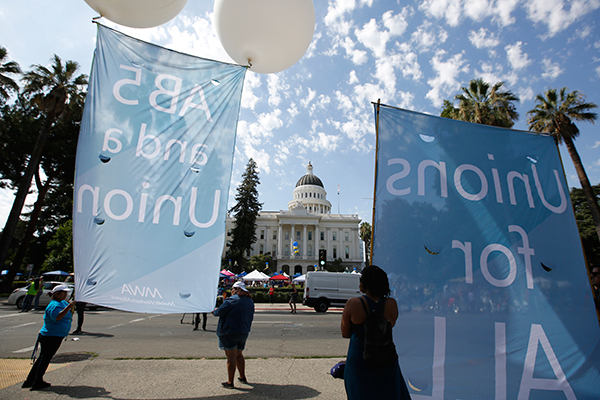Bloomberg News
Brazil Court Rules That Uber Drivers Are Independent Workers

[Stay on top of transportation news: Get TTNews in your inbox.]
Brazil’s Superior Court ruled that drivers who provide services through the Uber Technologies Inc. app are independent from the ridehailing firm, a decision that may benefit the company by setting a precedent for similar cases in the country.
“App drivers don’t have a hierarchic relationship with Uber because their services are provided casually, without pre-established working hours or fixed salary, and therefore the characteristics of the labor tie among the parts don’t exist,” the court said in a unanimous decision by the 10 justices that form the second section of the court, overturning a previous ruling from a local court.
San Francisco-based Uber has been defending the independent contractor status of its drivers around the world. In California, that designation is under threat as state legislators weigh a bill that could result in Uber drivers being labeled employees, entitling them to minimum wage protections and state-mandated benefits. Retaining independent contractor status ranked as one of Uber’s risk factors in the prospectus for its initial public offering earlier this year.

Supporters of a measure to limit when companies can label workers as independent contractors display banners in support of the bill during a rally at the Capitol in Sacramento, Calif., on Aug. 28, 2019. (Associated Press/Rich Pedroncelli)
The Brazil court, known as the STJ, also ruled that the civil court and not Labor Justice is the one responsible for settling disputes between Uber and its independent drivers. Brazil has a full legal structure dedicated only to labor claims, the so-called Labor Justice, with a labor code, buildings and courts tailored specifically to address claims related to labor relationships.
This system has put Brazil among the countries with the highest number of labor complaints and has prompted some foreign banks to sell their local retail operations. This is the first time that a legal dispute between Uber and one of its drivers reached a top court in Brazil. The decision should influence hundreds of other cases still in lower courts.
“The current technological tools available allowed the development of a new form of economic interaction, creating the so-called shared economy, in which services provided by private car owners are intermediate by technology companies,” according to the ruling published on the STJ’s website.
“The decision reinforces more than 250 lower courts decisions in Brazil saying there’s no labor tie between Uber and its drivers,” Uber said in an emailed statement.
Uber operates in more than 100 cities and has more than 600,000 drivers in Brazil, according to the company’s website. It works with more than 3 million drivers all over the world.
Eric Newcomer contributed to this report.




